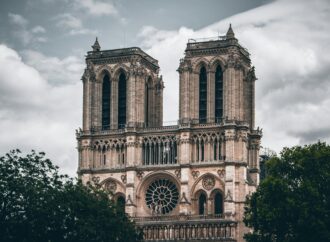I arrived to work this morning to news that 40 or 50 protestors had blocked a local highway during rush hour in protest of last week’s killing of Philando Castile.
Similar protests are taking place across the country, yet protests have become so prevalent that we tend to scarcely notice them unless it directly inconveniences us (i.e. it leaves you stuck on 35W South).
Why do we do this? Why has the protest become the primary vehicle of political expression?
In his book After Virtue, Alasdair MacIntyre discusses the failure of the Enlightenment Project to establish a justifying order of morality. In chapter six—“Consequences of the Failure of the Project”— MacIntyre explains that the breakdown of modern debate stems from an “incoherent conceptual scheme” regarding the inherent rights we believe we possess.
MacIntyre explains:
[Protesting] is now almost entirely that negative phenomenon which characteristically occurs as a reaction to the alleged invasion of someone’s rights in the name of someone else’s utility. The self-assertive shrillness of protest arises because the facts of incommensurability ensure that protestors can never win an argument; the indignant self-righteousness arises because the facts of incommensurability ensure equally that the protestor can never lose an argument either. Hence the utterance of protest is characteristically addressed to those who already share the protestors’ premises. The effects of incommensurability ensure that the protestors rarely have anyone else to talk to but themselves. This is not to say that protest cannot be effective; it is to say that it cannot be rationally effective and that its dominant modes of expression give evidence of a certain perhaps unconscious awareness of this.”
If I read MacIntyre correctly, he’s suggesting protestors can’t win (or lose) their argument and they are aware of this (consciously or subconsciously). So they protest, a means of expression that is at once simpler and arguably more effective.
—
















Leave a Comment
Your email address will not be published. Required fields are marked with *